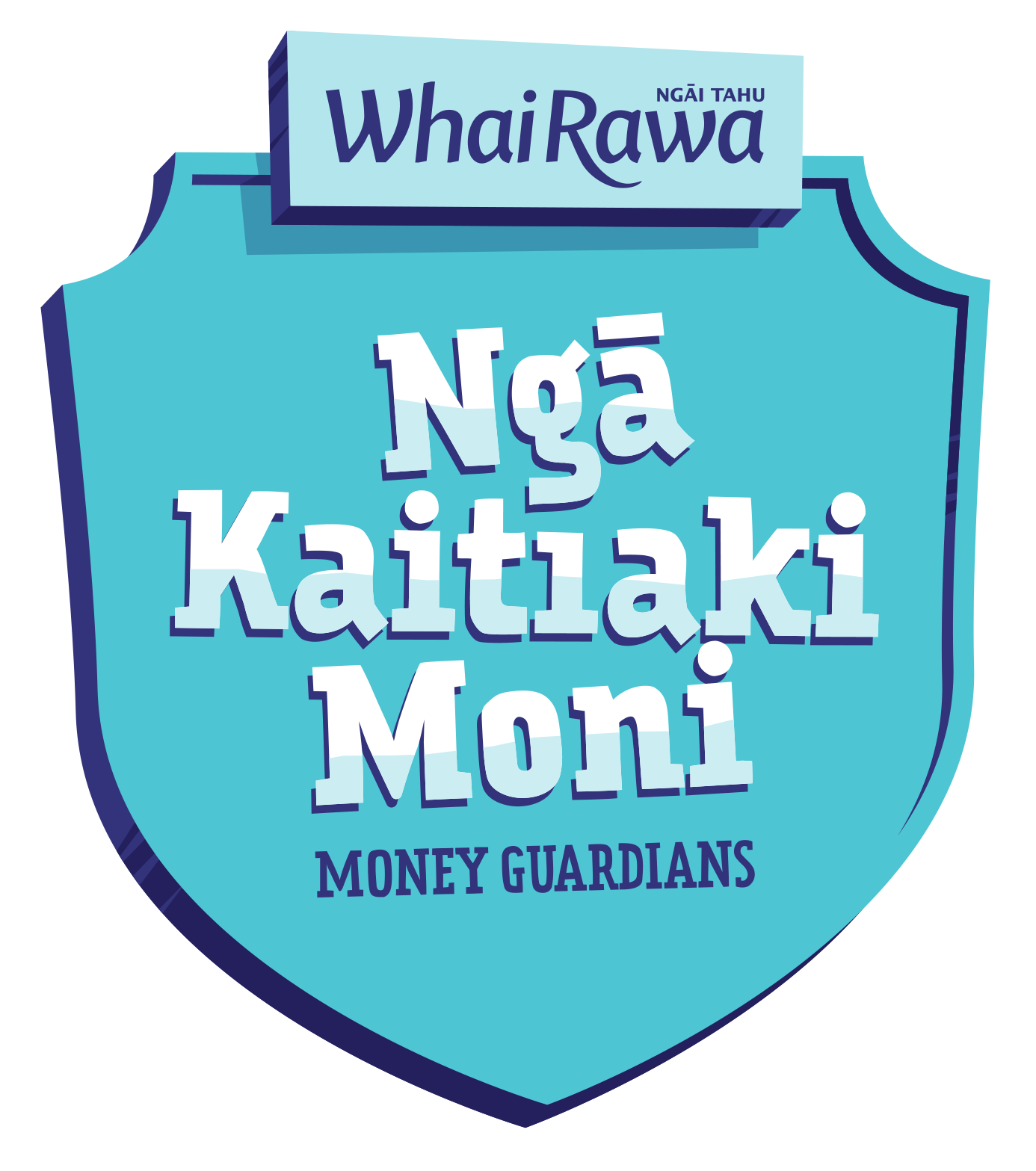Withdrawal Overview
Whai Rawa was set up to improve levels of tertiary education, home ownership and saving for retirement improving the wellbeing of Ngāi Tahu whānau. Outside of these categories there are limited opportunities to withdraw your funds. Remember if you are aged 55 or older you can make 2 withdrawals a year for any purpose to support your lifestyle in retirement.
If you need assistance filling out any of the other forms, please don’t hesitate to get in touch.
Withdrawal applications can take up to 10 business days to process. Please get in touch if you have any questions.
Market Fluctuations and Withdrawals
If you are looking to make a withdrawal soon, it’s important you understand how daily unit pricing works and how market fluctuations may impact your balance.
Whai Rawa is a unitised fund, which means our Investment Manager, Mercer (NZ) Limited values each member’s account units daily. Please be aware that, even in normal circumstances, it can take up to three business days for units to be priced and allocated to member accounts. This means that your balance may fluctuate (down or up) from the time we receive your complete application for review to the time your application is processed.
We advise that you check your account balance before proceeding with withdrawals and factor potential fluctuations into your plans. You can check your balance by logging into your online account at www.whairawa.com/login or by contacting us.
IMPORTANT: If you are logging in for the first time, you will need to reset your password.
Please note withdrawals can take up to 10 business days to process – from the date we have all the information we need.
Withdrawal Overview and Key Criteria
From the age of 55, two withdrawals may be made from your Whai Rawa account each year for any purpose. The minimum withdrawal amount is $500 (or your full account balance if it’s less than $500).
You can also make a request for a regular withdrawal. A regular withdrawal request is considered one Retirement Withdrawal, and each regular withdrawal instalment must be at least $50 per month.
Whai Rawa can be used for any NZQA or overseas equivalent approved course, either on completion, or during the course of study if no alternative sources of funding are available to you.
Withdrawal applications for the purpose of tertiary education may be approved by the Manager (Whai Rawa Fund Limited) where:
1.1 The withdrawal is being paid on completion of a bona fide tertiary course of study
1.2 The withdrawal will be applied to meet costs, fees and/or expenses related to a bona fide tertiary course undertaken by the Member and/or applied to repay or reduce the Member’s Student Loan or, if the Manager in its discretion agrees, will be applied to reimburse fees paid to a tertiary institution in pursuing tertiary education where the Manager is satisfied such fees have not been subsidised or reimbursed from any other source (note: Education Withdrawals are not available in respect of student loans taken out before joining the Scheme);
OR
1.3 the Member is undertaking the course of study, where the Manager is satisfied, in its sole opinion, funds to meet these costs, fees and/or expenses are not otherwise reasonably available to the Member.
1.4 the Manager may, at its discretion, modify or waive the above conditions in special circumstances provided the Manager is satisfied that the overall intent of the withdrawal is the pursuit of tertiary education.
In all cases however:
» the Member must be 16 years of age or older to make any sort of withdrawal
» costs incurred prior to the Whai Rawa account being opened will not be eligible for withdrawals.
2. Definition of Key Terms
Completed bona fide course of study is defined as an NZQA approved course or overseas equivalent where
EITHER
» The Member has a complete qualification i.e. not a “one-off” course/paper/unit/credit or a series of courses/papers/
units/credits which, taken together, do not count towards a complete qualification;
OR
» The Member has completed a full-time or part-time course of 32 weeks or longer. (StudyLink criterion for Student Loan)
Whai Rawa can be used to buy or build your first home or a subsequent home purchase where you are in the equivalent position of a first home buyer (a useful guide is if you are being allowed to withdraw your KiwiSaver monies towards the purchase).
1. Criteria
Housing Withdrawal applications may be approved by
the Manager (Whai Rawa Fund Limited) where:
(a) The Housing Withdrawal will be used for the purpose of home ownership; and
(b) The Member does not own their own home and, unless the Manager agrees otherwise, has not previously owned
their own home; and
(c) The Member has secured finance or has other finance available to complete the purchase of a home; and
(d) The Member intends to reside in the home upon purchase; and
(e) A valid sale and purchase agreement is in place or will be put in place once the Housing Withdrawal is approved; and
(f ) The Member has not previously received a Housing Withdrawal; and
(g) The Member is not a Child Member; and
(h) The amount of the Housing Withdrawal is not greater than the total balances of the Member’s Accounts.
The Manager may, at its discretion, modify or waive any of the above conditions (other than (c), (g) and (h)) in special
circumstances provided the Manager is satisfied the overall intent of the Housing Withdrawal is to enable the Member to
enter into owner/occupier home ownership.
Refer to the front page of the Home Ownership Withdrawal Form for further information about the criteria.
You may be able to make a Serious Illness withdrawal if you have an injury, illness or disability:
• that results in you being totally and permanently unable to engage in work in which you are suited by reason of experience, education, or training or any combination of those things; or
• that poses a serious and imminent risk of death.
If you meet these criteria you do not need to prove you are in significant financial hardship.
What You Will Need: Along with the completed Serious Illness Withdrawal Form, you will need a medical explanation of your illness as well as any supporting information, and have a doctor complete a confidential declaration for you.
You can apply for a withdrawal from your Whai Rawa account if you are suffering from a Life-Shortening Congenital Condition (LSCC). A LSCC is a condition that exists for a person from the date of their birth and is likely to reduce the life expectancy for persons in general with the condition below age 65.
You will need to:
- Review the additional Enduring Power of Attorney (EPA) form and attach the EPA documentation specified
within (if applicable). - Complete the Life-Shortening Congenital Condition Withdrawal Form including asking your doctor to complete the doctor’s declaration section of the form on page 4 and attach any supporting evidence.
To have a significant financial hardship (SFH) request approved by the WRFL Board, you need to provide evidence you are suffering, or likely to suffer, significant financial difficulties because you:
• are unable to meet minimum living expenses; or
• are unable to meet mortgage repayments on the home you live in, resulting in the mortgagee seeking to enforce the mortgage on your property; or
• need to modify your home to meet special needs because you or a dependent family member have a disability; or
• are required to pay for medical treatment for your own or a dependent family member’s illness, injury or palliative care; or
• incur funeral costs if a dependent family member dies; or
• suffer from a serious illness (alternatively, you may be able to make a serious illness application see above).
Before approving any request the WRFL Board:
• must be reasonably satisfied that reasonable alternative sources of funding have been explored and have been exhausted; and
• may direct that the amount withdrawn be limited to a specified amount that, in the Board’s’ opinion, is required to alleviate the particular hardship.
Minimum Living Expenses:
Minimum living expenses generally include the actual and reasonable costs of:
• Basic food and grocery items
• Accommodation (including mortgage repayments, interest, rates and necessary maintenance for the principal family residence)
• Basic clothing
• Utility services such as power, gas and telecommunications
• Transportation
• Fire and general insurances
• Medical and dental costs necessary for the maintenance of good health
• School fees (excluding private school fees)
• Expenses in relation to any dependents with special needs
• Other normal (non-luxury) household items
Generally, minimum living expenses do not include:
• travel to visit a sick relative
• paying off credit card debt
• holidays
• sky television payments
• fines or infringement notices
• mobile phone bills
• debts with collection agencies (e.g. Baycorp)
• hire purchase debt relating to non-essential living expenses (such as TV or gaming machine purchases)
• entertainment subscriptions e.g. Netflix, Spotify
What you will need: The Significant Financial Hardship Withdrawal form details the information required. This includes:
• the completed application form
• bank statements that show transactions for the last 30 days for all accounts in your name (individual, joint, business or in trust) and your partner’s name.
Depending on your exact situation you may need information such as:
• information about mortgage or rent arrears
• all overdue bills less than 30 days old showing balances and regular minimum payments for all your accounts
• details of your income (and any deductions) from your employer, Work and Income, or a summary of earnings if you are self employed
• a quote for any necessary home modifications to meet special needs arising from a disability
• a medical report and quote or invoice for any necessary medical expenses
Please note: If you are an undischarged bankrupt you are not able to make an application on your own behalf and must discuss a possible application with the Official Assignee.
Should a Whai Rawa member pass, the balance of their account will become an asset of their estate once their personal representative or another specified person, requests payment.
If you would like to apply for a withdrawal from the account of a Whai Rawa member who has passed, you need to ensure you are the rightful claimant and fill in the Deceased Estate Withdrawal Form. There is a declaration that must be signed in front of a lawyer or Justice of the Peace relating to the withdrawal.








